Contemporary Hungarian cultural policy doesn’t like when artists show you a mirror. This is also a bad reflex from the times of state socialism, as the main point of democracy is dialogue
– says Kristóf Kelemen, director and dramaturge of the Radnóti Theatre, whose two plays run in the Trafó at the moment: The Hungarian Acacia thematises the public discourse in Hungary in a satirical way, and Observers is about secret agents of the 1960s, but it also reflects on modern observation. When talking to Kristóf Kelemen, a lot was covered from historical traumas through national public and theatrical life to the way audience reacted on Hungarian Acacia abroad.

In February, you received the Contemporary Drama Prize for Observers. What does this mean to you?
It is a very important initiation. Zsuzsa Radnóti invested in a foundation from the money she received for her Kossuth Prize (Foundation for Contemporary Hungarian Drama), which gives a prize for plays that either tackle public topics or the history of Hungary. It helps a lot to bring more attention to these plays, which are often in a very risky situation.
Both Hungarian Acacia, Observers, and Talent Development with Wine Tasting react heavily on public life. Was it a rational decision as a director to deal with such questions, or you simply got inspired by them?
Theatre exists in the present and has its real influence in the present – unfortunately, a video recording doesn’t really capture live moments –, so for me, it is evident that it has to reflect on what we’re living now, let them be questions of public events or how we feel about the world around us. Contemporary plays are important, and they have always been on the side-line of Hungarian theatrical tradition if we compare them to widely known classics.
In Observers, you tackle the secret agent question. Why does this interest you?
I’m a doctoral student of the University of Theatre and Film, where my topic is the history of the university during the time of state socialism. I’ve conducted a lot of research in the State Security Services archives, which gives useful data to this historical age, and more and more ideas came to my mind when I saw these old pieces of papers, often typed with bad orthography. Maybe it was their everyday nature that I’ve got attached to.

What was the biggest surprise you encountered during your research?
For example the fact that being a secret agent was a part-time job in today’s terms. People had to organize meetings with their superiors and the observed people, then write the reports, with pretending and lying all the time. Although superior officers and agents met at public spaces, their secret signs and pseudonyms made them making their own little theatre play in front of everyone. You could think agent network was a hidden and secretive organization, but actually it happened in front of public eyes, invisibly. These everyday moments make it much easier to understand those people’s psyche who were involved.
You speak about reflexes that are still here from the state socialist times. How can theatre go against these?
It triggers discussion, shows the audience extreme human situations, makes an identification possible. In Hungary, collective memory is still lacking, my generation doesn’t really find way to history, although we need this knowledge to see our life situations from a different angle. People have a black-and-white view on secret agents as well, and if you are not directly affected, you tend to avoid identification. Involving in situations, though, helps us to understand them from an insider’s point of view.
So you want to add more shades to such black-and-white questions like the one of secret agents.
Yes. Of course, many artworks tackle this question, maybe with the same aim. I show the everyday life, in the almost invisible gestures, how agent work functioned. Traumas of the past come to light in the sordidest ways: such is the lack of trust, the paranoia, which is still present in today’s youth. In such a story from the 1960s, we can find ourselves as well.

How do you think trauma is inherited?
We let it survive in our usual communication. I used to live in Germany for a while when I had an Erasmus scholarship in Munich, and I realized there that I’m full of unrealistic paranoia about how others see me. It’s automatic. I had experiences from Hungary and brought them to a completely different environment to project it to people and situations. German public life and communication culture was much more relaxed than Hungarian was.
Observers also reflects on our smartphone culture, on how easy it is today to observe people. Is it really as scary as you depict it?
Technically, everyone is equipped to observe a given society, but most people don’t really know how this all works. Lack of information leads to conspiration theories. We have to be cautious, for sure. In the 1960s, agent networks were organized through interpersonal relationship; now it’s more like the average person who likes to share information about themselves in social media, and it might shape their relationship to private sphere, reality, and also their expectations related to them.
Hungarian Acacia was performed at plenty of international festivals. What were the reactions?
It debuted at the Off Europa Festival in Leipzig, Dresden and Chemnitz, then in the Basel program of the Swiss Theatre Festival, then in the Theatre Festival of Nitra, and the BOZAR in Brussels. It seemed to me that both the context and the humour of the play was understandable for the foreign audience. You would think that Hungarian Acacia tackles typical Hungarian public topics, but actually, through the symbol of the acacia, it is a general story of creating myths, writing histories. These can be interesting to anyone. After the play, we artists often get the question how we see Hungarian public life. The play will be performed in Budapest in May, and then it continues its journey, to Frankfurt, Munich and Prague.

As you said, less and less plays are made to discuss public and political topics. What can be the reason for that?
In Hungarian theatrical tradition, classic dramas give the usual basis for creating plays. They can be actualized to reflect on contemporary public life, but not as directly as a contemporary play itself. I guess it is my generation that should initiate more and more play that is set in the present, just like plays organized around certain topics but based on non-literary projects. Public life can also include stories of average people, but if we decide to show society, it often ends up showing politics. Contemporary Hungarian cultural policy doesn’t like when artists show you a mirror. This is also a bad reflex from the times of state socialism, as the main point of democracy is dialogue. In a democracy, artists can be critical, can formulate statements that are not necessarily attacking or colonizing, but are keys for development of society.
You often go to German theatres. What could Hungarian theatre artist learn from their German colleagues?
They have an attitude that anything ‘different’ can broaden our horizon. It’s much more present that directors and actors-actresses think together and create the structure and the text during the rehearsals. There are more working methods, so theatres can offer more forms. And the more diverse is what I see, the easier I can release my own creative fantasy.
You can see Hungarian Acacia on 22 and 23 May 2019, 8 pm, in the Trafó.
Interview: Zsolt Várkonyi
Translation: Zsófia Hacsek


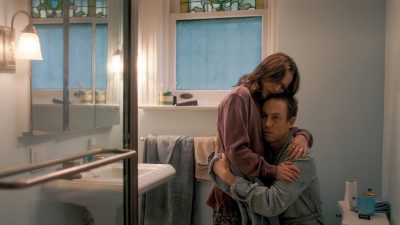


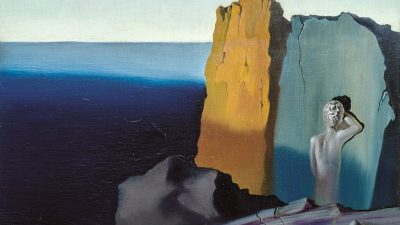



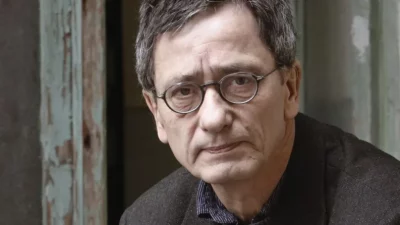




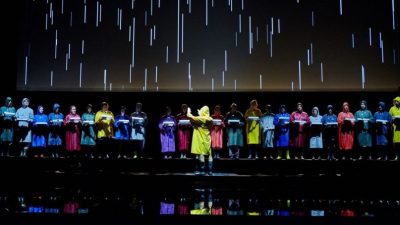










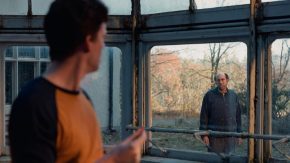
Comments